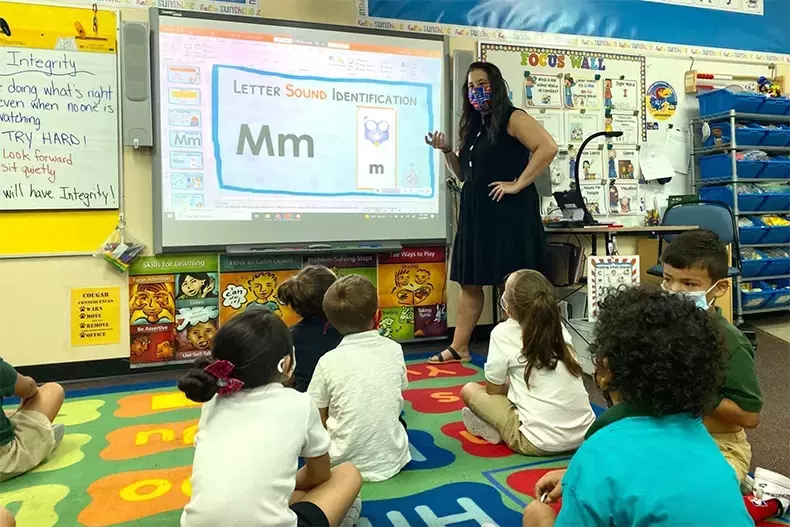
Education Commissioner Randy Watson of Kansas is advocating for changes in the academic calendar to address learning gaps exacerbated by weather-related school closures and the ongoing effects of the pandemic. He suggests canceling breaks or extending the school year to compensate for lost instructional time. Additionally, Watson proposes implementing half-day summer programs during June and July for younger students struggling with reading and math. These measures aim to recover learning losses that began prior to the pandemic. While Kansas law mandates a minimum of 186 school days annually, districts have increasingly opted for longer but fewer school days over the past decade, reducing the average school year from 174 days in 2008 to 166 days this year.
In recent years, severe winter conditions have led most Kansas districts to lose approximately eight school days. To counteract these interruptions, Commissioner Watson has urged schools to reconsider their scheduling practices. He emphasized the importance of making up lost time by utilizing alternative strategies such as shortening scheduled breaks or adding extra days to the academic calendar. Furthermore, he highlighted the potential benefits of offering targeted summer instruction for early learners who are lagging academically. This approach would provide additional hours of focused learning without transitioning to a full-year schooling model, which remains controversial among educators and families alike.
Watson also pointed out that current state regulations allow flexibility in meeting the required number of school days or instructional hours per year. However, he discouraged granting waivers for districts failing to meet these standards due to inclement weather. Instead, he encouraged administrators to explore creative solutions like incorporating supplementary sessions into existing schedules. For instance, increasing daily class durations could offer teachers more opportunities to engage students effectively while addressing curriculum deficiencies.
The commissioner's proposal stops short of advocating for year-round schooling, acknowledging resistance from both educational institutions and parents. Despite previous legislative attempts to enforce extended school years, such ideas have not gained widespread support. Nevertheless, Watson believes that initiating discussions about enhancing academic focus within communities can foster greater acceptance for innovative educational approaches. By prioritizing academic engagement similarly to how extracurricular activities are valued, there may be increased participation in supplemental learning initiatives.
Ultimately, transforming societal attitudes towards education requires concerted efforts from all stakeholders involved. Encouraging active parental involvement and emphasizing the significance of continuous learning throughout the year could lead to meaningful improvements in student outcomes. As Kansas continues navigating challenges posed by interrupted schooling periods, embracing flexible yet impactful adjustments to traditional calendars presents promising avenues for fostering academic success among its youth.
